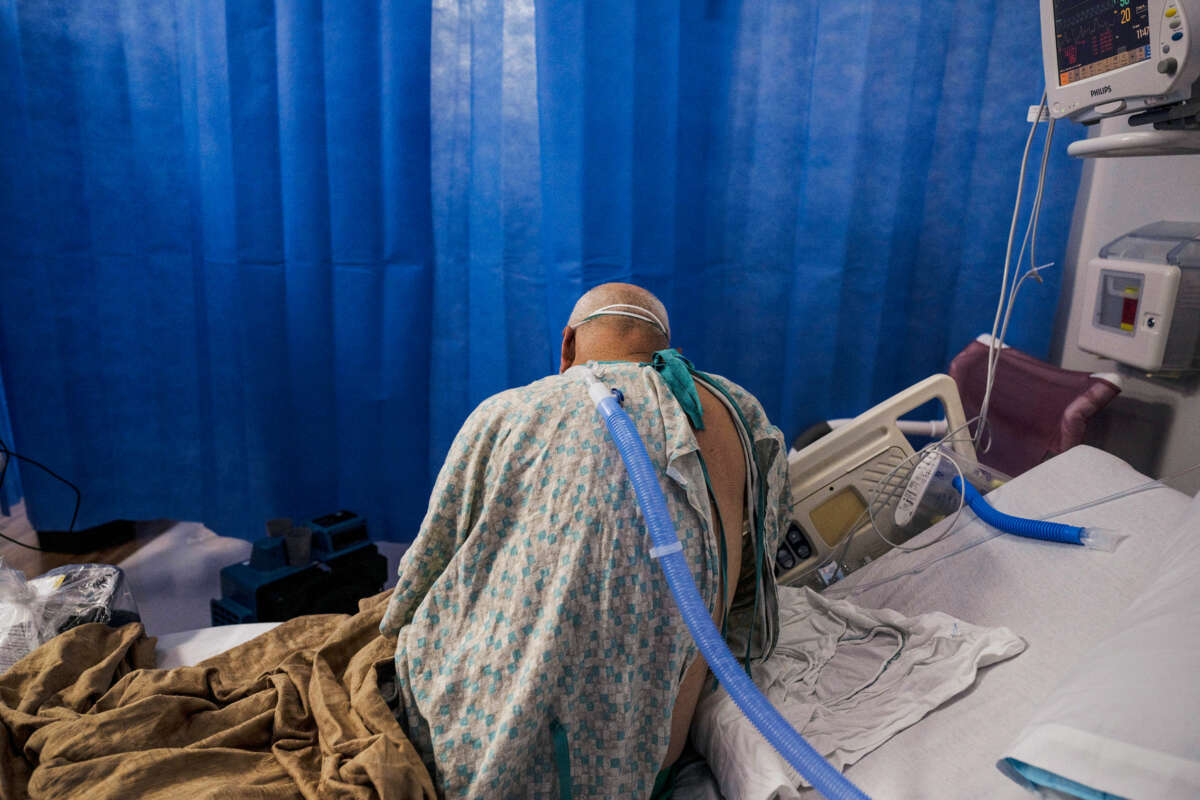Did you know that Truthout is a nonprofit and independently funded by readers like you? If you value what we do, please support our work with a donation.
In late January, amid intensifying scrutiny of the quality of care provided by the American end-of-life care industry, the Centers for Medicare and Medicaid Services has reformed how it inspects hospice providers. The changes, detailed in a 196-page document, went into effect immediately.
Under the new protocol, inspectors must sample data from multiple locations where the hospice operates and evaluate a broader range of metrics. These include records on the hospice’s inpatient care, bereavement practices and reasons patients are leaving the service alive. “An unusually high rate of live discharges could indicate that a hospice provider is not meeting the needs of patients and families or is admitting patients who do not meet the eligibility criteria,” the revised rules note.
The rules also include directives for inspectors to evaluate the abuse and neglect of patients — an issue that has long plagued hospice providers, according to investigations from both the media and the Department of Health and Human Services Inspector General’s Office. In fact, surveyors are now required to consult news reports, previous complaints and patient reviews about the hospice in question before they begin an inspection.
In November, a ProPublica-New Yorker investigation exposed the way easy money and lax regulation have transformed a charity movement into a $22 billion juggernaut rife with exploitation. It also described an alarming network of entrepreneurs propping up for-profit hospices in Nevada, Texas, Arizona and California. State and federal licensing data showed that addresses in Phoenix, Houston, Las Vegas and Los Angeles were reportedly home to dozens — sometimes hundreds — of hospice startups, many with the same owners.
The overhaul of the inspection requirements is the most concrete reform to date to emerge from the recent push for and discussion surrounding greater oversight of the American end-of-life care industry.
The demands continue to grow. Last week, a bipartisan coalition from the House of Representatives sent a public letter to CMS Administrator Chiquita Brooks-LaSure calling for a crackdown on fraud and abuse of the hospice benefit.
“As you know, ProPublica and The New Yorker published an article on November 28, 2022 detailing horrific allegations of fraud from newly certified hospices that run the gamut of wasting taxpayer dollars to putting vulnerable patients in danger,” the letter states. “The various instances of gaming the system and harming patients raises a number of questions about how the hospice benefit is currently implemented and how the federal government can better partner with stakeholders and state agencies to stop this going forward.”
The letter from the House is the latest instance of lawmakers asking CMS to protect dying patients and their families. In December, three weeks after the publication of the ProPublica-New Yorker exposé, a bipartisan group of senators sent their own letter to Brooks-LaSure noting that “further evidence of apparent Medicare fraud cannot be ignored.”
Both sets of lawmakers have requested briefings from CMS on the agency’s plans to penalize bad actors and what additional authority, if any, it will need from Congress to carry them out.
“Hospice can be an important part of a patient’s care, but only if it is operating as intended,” the representatives wrote in the letter sent last week. “We stand ready to work with CMS to ensure that this continues to be a safe option for patients while ensuring that congressional oversight is carried out.”
Industry leaders have echoed these concerns. In an effort hailed by experts as “unusual and impressive,” the national trade associations for palliative care providers have banded together to advocate for more regulation. Just last week, the groups met with Brooks-LaSure to discuss a joint list of 34 recommendations for strengthening program integrity. At the meeting, the trade groups spoke to CMS about developing a list of “red flag criteria” that would trigger additional scrutiny before hospice owners could start billing Medicare. The groups also reiterated their suggestion that the agency implement a targeted ban on new hospices in high-growth areas.
A CMS spokesperson told ProPublica that the agency “takes the oversight role of the Medicare hospice program seriously and is aggressively focused on reducing and eliminating fraud, waste and abuse.”
Press freedom is under attack
As Trump cracks down on political speech, independent media is increasingly necessary.
Truthout produces reporting you won’t see in the mainstream: journalism from the frontlines of global conflict, interviews with grassroots movement leaders, high-quality legal analysis and more.
Our work is possible thanks to reader support. Help Truthout catalyze change and social justice — make a tax-deductible monthly or one-time donation today.
